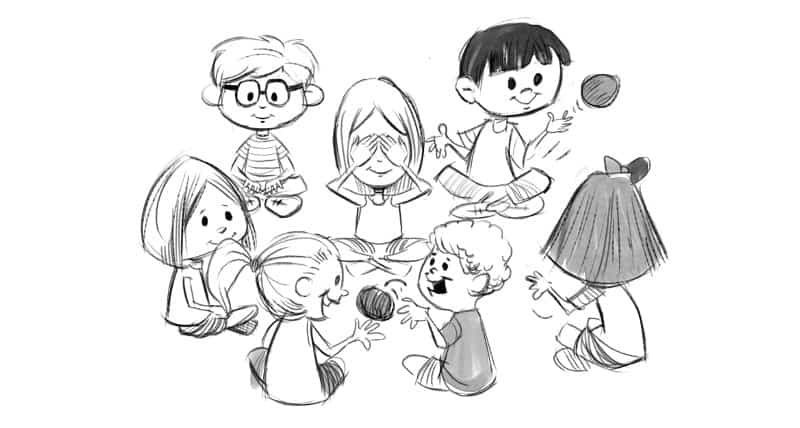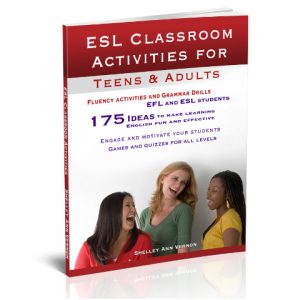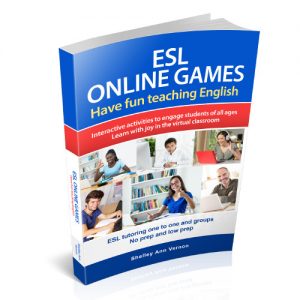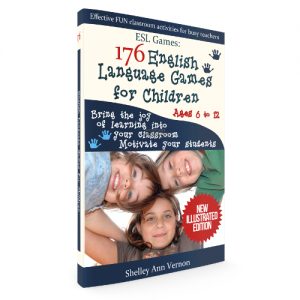I received a question today about the difference between a game and an exercise. It seems to me that an exercise is just a drill, there is no game element. An exercise does not purport to be fun, whereas a game does.
Fun learning
Add an element of fun to an exercise and you have a game!
The element of fun might be to go against the clock or to compete with other participants, individually or in teams, but a game does not have to be competitive. For instance, take the game Hot Potato. In this game there is no competition. Students pass objects around the classroom, repeating a phrase or word each time they pass something. When the teacher says, “stop”, all those students with an object perform a silly forfeit, such as a dance, pretending to be a chicken, hopping on the spot ten times, or whatever.
Fun learning is more effective than dull learning, because students are more involved and motivated. Most of my games for children are disguised drills or exercises, but since they come in an attractive game package, children enjoy them and participate. As a consequence, pupils learn English more easily.
Fun resources to turn exercises into games
See my book 176 English Language Games for Children for great tips and games. It’s in instant PDF download and in Kindle and paperback on Amazon.
Resources to turn exercises into games
-
Sale Product on sale
 Games and Activities for Teens and Adults
Games and Activities for Teens and Adults€19.97Original price was: €19.97.€15.33Current price is: €15.33.Rated 5.00 out of 5 based on 12 customer ratings -
 ESL Online Games€19.97Rated 5.00 out of 5 based on 4 customer ratings
ESL Online Games€19.97Rated 5.00 out of 5 based on 4 customer ratings -
Sale Product on sale
 ESL Games book for primary & middle school children
ESL Games book for primary & middle school children€19.97Original price was: €19.97.€15.33Current price is: €15.33.Rated 5.00 out of 5 based on 2 customer ratings




5 thoughts on “The difference between a game and an exercise”
Dear Shelley, my native language is Spanish and I learned English at the university. English is not widely spoken here, but when you are interesting in learning something you get it. I think that body language is very useful when your class knows very little. Also teaching through songs, repeating imitating, etc. Now I’m retired but my daughter is a teacher of English and your advices aré very useful for her, since I share with her everything I know and she teaches me all the new things she comes across.
Dear Carmen, Thanks for your comment. Yes I agree with you, body language and miming are all part of demonstrating, rather than using words to explain. When words are limited actions can fill the gap. I wish you a happy retirement. Thanks for sharing with your daughter.
All the best
Shelley
I think that the difference is in the elements involved in a game and in an activity. A game is enjoyable, is having fun, is challenging, emotions appear, is to play for the sake of playing then, teachers can add any variation to include learning.
I think a game allows choices and encourages creative thinking, whereas an exercise is just doing the same thing over and over, as if to learn by rote. If the object is to learn a poem, the alphabet, a set of words that does not change, that is an exercise. Games, which offer choice and do not require adherence to a certain “path”, would be more like “hide and seek”, or “20 questions”, or chess.
Good point Gail, thanks a lot for commenting. All the best, Shelley